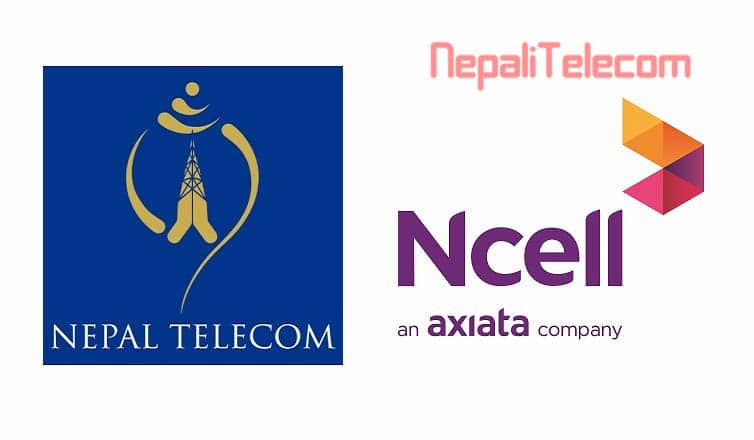How did six million mobile users decrease in one month? | Nepal Telecom and Ncell do not have the technical ability to show live World Cup football!
How did six million mobile users decrease in one month?
According to the Nepal Telecommunication Authority, about six lakh mobile users have decreased within a month. According to the latest data released by the authority, it has been found that more than 580 thousand mobile users have decreased in July compared to last June. As of June, the number of mobile users in Nepal was 47,930,000. That number has reduced to 40,200,000 in July. CDMA users are not included in this number of mobile users. This is only the number of GSM mobile users.
When the service provider deactivates the mobile SIM card that has not been used for a long time, the number of users seems to decrease in the statistics. The Authority has implemented a system that service providers can deactivate SIM cards that have not been used for one year.
According to the authority, among the total mobile users, the number of Nepal Telecom SIM card users has exceeded 27 million. Similarly, the number of Ncell SIM card users is over 17.1 million. Smart Telecom has sold around 2.4 million SIM cards.
Most of the decreased mobile users are Nepal Telecom customers. As of June, there were 23.77 million SIM card users of Telecom, but in July, this number decreased to 27 million. Telecom alone has lost more than 674,000 customers during that period. In the same period, while the number of Ncell users increased, it was seen that the number of mobile users decreased by 6 lakh in a month.
This number of mobile users in Nepal is more in proportion to the population. According to the authority, it seems that 38.84 percent of the total population has access to mobile phones. More than one user is using more than one SIM card in order to have access to more than one mobile phone. When the authority calculates by considering one user per SIM card, it is seen that the mobile access is more than the population.
Nepal Telecom and Ncell do not have the technical ability to show live World Cup football!
The government-owned telecommunication company Nepal Telecom's plan to show the football World Cup live through its mobile app has now been limited to discussion. The company withdrew from the plan to broadcast the World Cup live because it was not technically ready. Besides, the plan to show football live was also approved in principle by the Telecom Board.
This project was considered to be very important for Telecom, which has 15 million mobile users. But in the end, Nepal Telecom was unable to show the football World Cup live through the mobile app. Now, the question of why the live broadcast on the mobile app could not be done within the company has become a topic of discussion.
Media Hub, which has got the right to broadcast World Cup football live across Nepal, made a proposal of 22 million rupees to Telecom for this. According to Som Dhital, owner of Media Hub, which has 10 crores of live broadcast, title sponsor of 5 crore rupees and technical equipment and systems worth 4 crore rupees.
"Rs 22 crore was with VAT," he says, "so we were open to the modality of revenue sharing as well." In that case, we sought a ``minimum guarantee'' of Rs 10 crore.
Baikunth Aryal, ex-officio chairman of the company and secretary of the Ministry of Communication and Information Technology, was also positive about the live broadcast of World Cup football through Telecom's mobile app. Telecom officials say that he suggested working with Media Hub on a revenue sharing model.
Also, when it comes to the final stage, Telecom officials say that there is an agreement regarding the provision of Rs 5 crore to Media Hub and the distribution of income for the remaining amount. In which there was also the subject of commercial promotion of telecom.
"The minutes required for this had also been prepared," says an official from the company's management level, "only the signing was left."
When the discussion started at 22 crore rupees, the protesting employee organizations remained silent on the implementation of the latest agreement. While in India, Jio is showing World Cup football for free to its users. As a result, the company's customers have increased by 20 million only during the World Cup.
Broadcasting the World Cup was a similar opportunity for Nepal Telecom. However, after several meetings, a decision could not be reached when the final agreement was reached. By broadcasting live through Telecom's mobile app, everyone would have easy access to World Cup football, customer loyalty to the company would increase, and even commercial profit was a matter of profit.
On the other hand, users who do not have a Telecom SIM had the opportunity to get the company's new SIM and to activate inactive customers. Five crore rupees was not even that big of a sum for Nepal Telecom. The company's management estimated that the data consumption of the company would increase and by charging a fixed fee from each customer, the cost would not only rise easily, but the income would be up to 10/12 crore rupees.
On the other hand, the advertising and market promotion work, which would have to spend crores of rupees, would also be done through it. In the failure of this project, the practice of blaming each other has also started to be seen between the employee organization, high level employees and management.
In fact, it is understood that Telecom has withdrawn from the plan to show the World Cup live through the OTT app as it is not technically ready. Distribution of video content through mobile networks is a complex matter in itself. On top of that, it was even more of a challenge to broadcast content that was in high demand like World Cup football.
"It wasn't that difficult for us to show live World Cup football in urban areas through a mobile app. Our understanding was that since there are many options for internet in the city, there should not be so much load on our network," a top telecom official told Tekpana. "The main challenge for us was for users in rural areas. Because it was expected that the video traffic would come from rural areas that do not have easy access to fixed line internet. But if our network is not able to handle it, it could be a bad shock to the company.
Dhital, the owner of the media hub, also says that the plan to show World Cup football live on the mobile app has been withdrawn due to other reasons and not because the telecom is not technically ready.
"As far as I understand, Telecom's network system is not capable of live streaming video content," he says, "Perhaps there was a risk that even mobile and SMS services could be affected due to the heavy load of video content."
Dhital has admitted that the live broadcast of World Cup football could not be shown on Telecom's mobile app even though both parties wanted.
Media Hub also sent a similar proposal to Ncell. Dhital says that not only the local leadership of the company but also the parent company in Malaysia are positive. "But Ncell initially backed out, showing that they did not have enough infrastructure," he says.


Comments
Post a Comment
If you have any doubts. Please let me know.